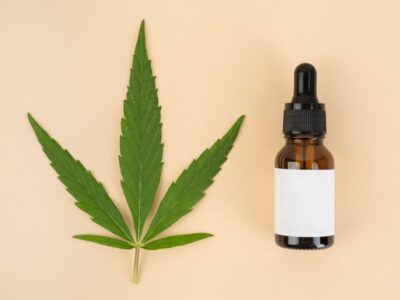The media constantly discusses cannabidiol (CBD), and you may have seen advertisements for it as a supplement for your morning coffee or post-workout smoothie. There is also a sports bra with CBD in it. But what precisely is CBD? What makes it so popular, and why?
What sets cannabidiol apart from hemp, cannabis, and marijuana?
The second most prevalent active ingredient in marijuana is CBD, also referred to as cannabidiol (marijuana). Although CBD is a key ingredient in medical marijuana, it is either extracted directly from the hemp plant, which is closely related to the marijuana plant, or created in a lab. One of the thousands of substances found in marijuana, CBD, does not by itself cause a “high.” There is currently no evidence of any public health problems connected with the use of pure CBD, according to a World Health Organization evaluation, which states that “CBD has no effects in humans that suggest the likelihood of misuse or dependence.”
Is the usage of cannabidiol permitted?
Although CBD is freely accessible throughout the majority of the United States, its legal position is ambiguous. All 50 states have legalized CBD, albeit there are varying levels of regulation. In December 2015, the FDA loosened its regulations to make it possible for researchers to test CBD. It is now practically impossible to keep CBD illegal in the United States thanks to the Farm Bill of 2018; it would be like legalizing oranges but keeping orange juice prohibited.
The Farm Bill eliminated all hemp-derived goods, including CBD, from the Controlled Substances Act, which makes drug possession illegal. In essence, this means that, despite the fact that they contain the same molecule, CBD is lawful if it comes from hemp but not from cannabis (marijuana). Nowadays, a lot of people purchase CBD online without a medical marijuana card, which is legal in the majority of states.
The evidence backs up cannabidiol’s benefits for health.
The effectiveness of CBD in treating some of the most severe pediatric epileptic disorders, like Dravet syndrome and Lennox-Gastaut syndrome (LGS), which frequently do not respond to antiseizure medications, has received praise for a variety of health conditions. However, this is not supported by the majority of scientific research. Multiple studies have demonstrated that CBD can reduce the frequency of seizures and, in some cases, even end them entirely. The first cannabis-derived medication for these illnesses to receive FDA approval is called Epidiolex, which contains CBD.
Self-reports, human research, and animal studies all indicate that CBD may also be beneficial for:
- Anxiety: Studies and clinical trials have shown that CBD reduces anxiety.
- Insomnia: According to studies, CBD may help with both getting to sleep and staying asleep.
- Persistent discomfort: In order to support claims that CBD can help with pain management, more human study is required. According to an animal study that was published in the European Journal of Pain, CBD may help lessen arthritis-related pain and inflammation when applied topically. Other studies indicate that CBD may aid in reducing neuropathic and inflammatory pain, two types of pain that are challenging to treat.
- According to some human research, CBD may, in some circumstances, help lessen cravings for heroin and cigarettes. It might also aid in lowering cravings for alcohol, marijuana, opioids, and stimulants, according to animal addiction models.












